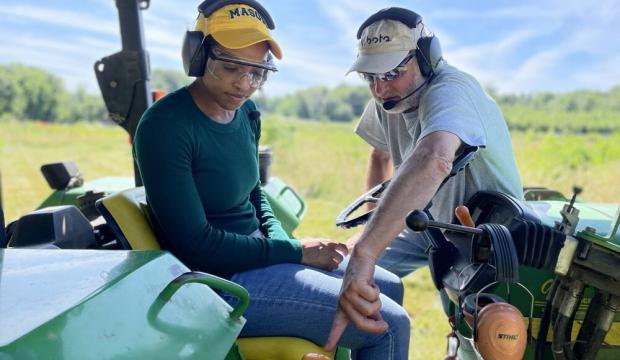
Breaking News
 Iran War Day Four: Shifting US Narratives As Skepticism Grows
Iran War Day Four: Shifting US Narratives As Skepticism Grows
 Age Verification Mandates: The 'Protect the Kids' Scam That's Building a Permanent Surve
Age Verification Mandates: The 'Protect the Kids' Scam That's Building a Permanent Surve
Top Tech News
 US particle accelerators turn nuclear waste into electricity, cut radioactive life by 99.7%
US particle accelerators turn nuclear waste into electricity, cut radioactive life by 99.7%
 Blast Them: A Rutgers Scientist Uses Lasers to Kill Weeds
Blast Them: A Rutgers Scientist Uses Lasers to Kill Weeds
 H100 GPUs that cost $40,000 new are now selling for around $6,000 on eBay, an 85% drop.
H100 GPUs that cost $40,000 new are now selling for around $6,000 on eBay, an 85% drop.
 We finally know exactly why spider silk is stronger than steel.
We finally know exactly why spider silk is stronger than steel.
 She ran out of options at 12. Then her own cells came back to save her.
She ran out of options at 12. Then her own cells came back to save her.
 A cardiovascular revolution is silently unfolding in cardiac intervention labs.
A cardiovascular revolution is silently unfolding in cardiac intervention labs.
 DARPA chooses two to develop insect-size robots for complex jobs like disaster relief...
DARPA chooses two to develop insect-size robots for complex jobs like disaster relief...
 Multimaterial 3D printer builds fully functional electric motor from scratch in hours
Multimaterial 3D printer builds fully functional electric motor from scratch in hours
 WindRunner: The largest cargo aircraft ever to be built, capable of carrying six Chinooks
WindRunner: The largest cargo aircraft ever to be built, capable of carrying six Chinooks
Veterans, Military Spouses Cultivate a New Mission on the Farm: 'This is the place that relaxes

The Arcadia Center for Sustainable Food figured that veterans were perfectly cut out for farming, as the average vet is 45% more likely to start their own business, and aside from being physically fit, are used to enduring discomfort, waking up early, and being both self-reliant and a team player.
Looking to connect their need to perform a service for their communities with the needs of thousands of retiring military who reenter society every year, Arcadia created the Veteran Farmers Training Program.
Just a few miles from the Pentagon in Arlington, Arcadia trains veterans in the fundamentals of agriculture both in the field and in the class room. The veteran-owned center is partly veteran led as well.
Ephesia Sutton was in the US Army for 20 years, and now trains veterans like herself how to grow nutritious produce for their families and communities.
"I left the military with PTSD, depression, and anxiety, and I would rather be anywhere else when dealing with those symptoms. This is the place that relaxes me," said Sutton told Stars and Stripes from the fields of collard greens, cucumbers, bitter melon, peppers, spinach, kale, and tomatoes.
"Knowing the work that I'm doing every time I put my hands in the soil is going to provide for a family, for somebody in this community, that just gives me the push to be out here every day," Sutton said.
As military tend see the world and actions within it through the lens of "the mission," Arcadia is attempting to tackle two massive nationwide problems beyond anything to do with the food supply.
The average American farmer is 56 years old, and a dearth of 700,000 such agriculturalists is predicted to manifest over the next two decades. Meanwhile, the generation that enlisted to fight in the Global War on Terror is now retiring from the services in larger and larger numbers.
Many of these veterans are returning like Sutton—with PTSD and other emotional trauma from witnessing the tragedy and failures in the occupations of Iraq and Afghanistan.
New missions, new opportunities to serve are vital, as Sutton has learned.
The Solution according to Arcadia is to pay veterans to learn how to farm. Help them find affordable land. Provide easy market access for the food they produce to satisfy the robust and growing public demand for organic or local produce, and lastly reinvigorate the farming sector with skilled new growers, eager to begin their next phase of life.

 Geniuses on Education
Geniuses on Education
 The March To War With Iran
The March To War With Iran RNA Crop Spray: Should We Be Worried?
RNA Crop Spray: Should We Be Worried?

